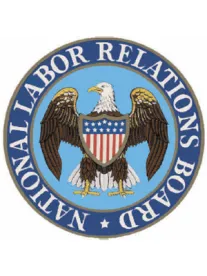The last few months at the NLRB have been relatively quiet, save of course for the ambush election rules which went into effect on April 15; the true impact of these rules has yet to be revealed. Many of the recent Board cases involve correcting decisions that were invalidated by the Supreme Court in its Noel Canning recess appointment decision.
We recently reported that the NLRB Division of Advice had determined that an employer’s search of a company car during an investigation into employee misconduct did not trigger Weingarten rights. Cases involving Weingartenrights, the right of a union represented employee to seek representation in an investigatory interview, are interesting because the potential scenarios are limitless. The Board recently addressed a fairly unique situation in Asset Protection & Security Services, L.P., 362 NLRB No. 72 (April 22, 2015), a case where it dismissed a complaint even though an employer denied a union represented employee’s request to have a co-worker witness, as opposed to a representative, in an investigatory interview.
The employer in Asset Protection & Security Services contracted with the federal government to supply armed and unarmed transportation and detention guards to a federal immigration facility. The employee guards in question were represented by a union. The parties’ collective bargaining agreement enshrined Weingarten rights, including a requirement that the employer release the union representative from work and to pay that person for time spent undertaking such duties. Charging Party was a guard who had served as an elected union representative at various times but did not hold such a position during the time of the events of the case.
During a morning “muster” of guards, the Charging Party had an encounter with a supervisor which was considered confrontational and insubordinate by the employer. The employer initiated an investigation and placed the Charging Party on leave pending completion of the inquiry. The employer informed the Charging Party that he would need to come in for an interview about the incident, clearly the very type of interview governed by Weingarten because discipline or discharge was a possible outcome.
The Charging Party guard requested a union representative and asked that an international union representative represent him. For reasons which are not set forth in the decision, the international representative did not wish to enter the facility and so the Charging Party selected a different representative from the local union, the individual who was the point of contact for disciplinary interviews. Ultimately, the Charging Party changed his mind and in an e-mail exchange told the employer that he would represent himself in the interview. An interview was then scheduled.
On the date and time of the interview, the Charging Party appeared at the interview along with a fellow guard who was supposed to be working. The Charging Party asserted his co-worker would act as his witness. The employer denied the request noting that the witness was not a union representative, was supposed to be working and was in fact on the clock. The employer directed the co-worker to return to his duties, leaving only the Charging Party and employer representative. During the interview the employer asked the employee to review a record of discipline that would suspend him for five days for acting in an insubordinate manner at the muster. The Charging Party refused to answer some questions during the interview and refused to sign the notice of suspension. It was noted that an employee’s refusal to sign a disciplinary document was not unusual.
After the interview was concluded the employer decided to terminate the employee for insubordination during the interview, including his refusal to answer questions.
The General Counsel alleged that the employer’s refusal to allow an employee witness during the interview violated the Act as a denial of Weingarten rights.
The Administrative Law Judge dismissed the complaint, a decision which was upheld by the NLRB. The ALJ concluded the Charging Party’s Weingarten rights had not been violated because:
[Charging Party’s] request for an employee witness at his self-represented interview is not a right specifically guaranteed in Weingarten as it is currently applied. The right to a Weingartenrepresentative is a right to a representative who is an agent of the labor organization which serves as the exclusive representative of the employees. Weingarten, supra, 420 U.S. at 257-258
The ALJ also rejected the General Counsel’s assertion that an employee witness was mandated under Weingartenbecause a conflict of interest existed between the Charging Party and local union leadership because they had run against each other for union positions. The ALJ concluded that while the union’s representation of Charging Party in this matter “might have been awkward, it is insufficient to warrant a finding of hostility, conflict of interest, or adverse interest.”
In upholding the dismissal, the Board emphasized that it was relying on the fact the Charging Party had indicated that he would represent himself and that “under these particular facts that [Charging Party] did not effectively request a Weingarten representative.”
Why would the NLRB be so careful in its ruling upholding the ALJ’s decision? The short answer may be that the General Counsel and NLRB are looking for a case to extend Weingarten rights to the non-union context, which would of course mean that an employee witness would be permissible given that no representative exists in that context. Indeed, the General Counsel has said as much in his GC Memorandum 14-01, Mandatory Submissions to Advice (February 24, 2014) which requires the Regions to send to the Division of Advice, cases “involving the applicability of Weingarten principles in nonunionized settings. . .”
Over the years, the Board has gone back and forth on whether to apply Weingarten rights in the non-union setting. Currently, Board law holds that such rights do not apply in the non-union context. So, it appears it may be only a matter of time before the law in this area changes…..again.



 />i
/>i

